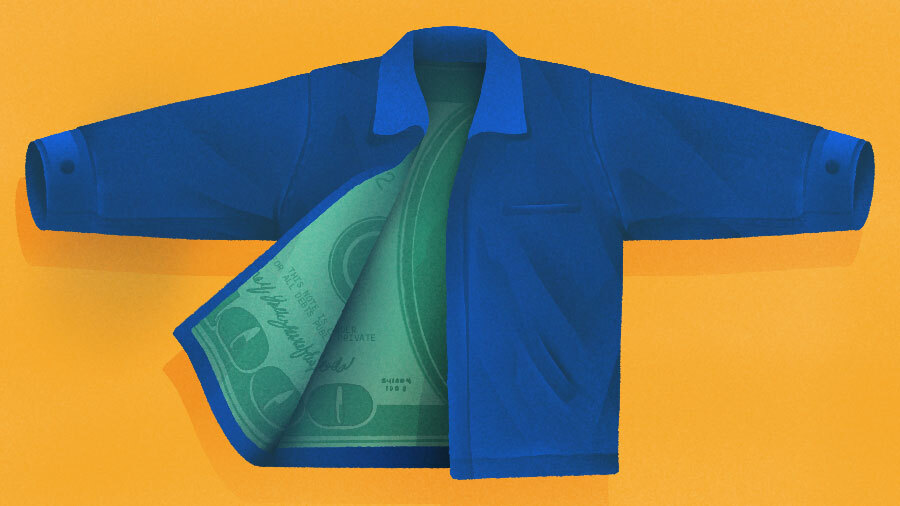VC-Backed Startups That Stitch AI And Fashion Together See Strong Investor Interest
Despite the overall decline in VC funding, fashion-related AI startups have continued to attract investment. This trend highlights the growing interest in the intersection of technology and fashion. The data suggests that investors see potential in leveraging AI to disrupt and innovate the fashion industry. Startups in this space are likely to continue receiving funding as they offer unique solutions and opportunities for growth. The consistent investment in fashion-related AI startups signifies a promising future for the sector.

Venture capitalists, as a group, aren’t exactly notorious for their keen fashion sense, but many have taken a strong interest in backing startups that thread AI technology into the apparel industry. Overall numbers are still relatively small for this emerging sector, but venture investment in fashion-related AI startups has risen or held steady in the past five-plus years. That’s even as VC funding generally has fallen from its pandemic-era highs, Crunchbase data shows. Funding to startups at the intersection of AI and apparel spiked to $162 million in 2022 — when China-based Zhiyi Tech, which helps clothing brands spot and predict fashion trends, raised $100 million alone — and has clocked in around $100 million annually since then.
Investors’ interest in fashion-related tech makes sense, given that as a species, we’re estimated to spend an astonishing $1.8 trillion globally each year on attiring ourselves. That figure is projected to climb to $2.3 trillion by 2030. The true economic and environmental costs of the fashion industry are of course much higher, by the time you account for production waste and pollution, the resources that go into shipping clothes halfway across the world, and frequent returns and exchanges — not to mention concerns about labor conditions in garment factories.
Companies at the Intersection of Fashion and AI
We identified dozens of companies operating at the fashion-and-AI intersection that raised venture funding in recent years, many of them working on issues such as more efficient manufacturing or faster trend-spotting. Some offer AI-driven creative design tools, others are focused on AI-enabled demand prediction or manufacturing, and several companies offer personalized shopping or customized garments. Let’s take a closer look.
Predicting Fashion Trends
The best-funded startup at the intersection of fashion and AI appears to be Zhiyi Tech. The Xiaoshan, China-based company searches the internet and social media for trending designs and combines that with sales data from e-commerce platforms to help brands quickly capitalize on viral trends. Investors appear to be particularly eager to back companies that tap AI to predict fashion trends. In the U.S., another top funding recipient is Finesse, a Los Angeles-based startup that creates fast-fashion clothes based on social media votes, shopping data, and viral trends spotted by its machine learning technology.
Another well-funded startup in the fashion demand prediction realm is Syrup Tech. The New York-based company has raised $25.1 million total for its AI-driven predictive software used by fashion brands.
AI Fashion Design and Creation Tools
Fashion designers are increasingly using generative AI to help them design clothes and make 3D digital mockups of items before they ever go into production. Funded startups include Raspberry AI and AI.Fashion, among others.
Discovery and Personalization
AI is also changing how consumers discover clothing and footwear. Startups in this category use machine learning to personalize recommendations, improve product tagging, and offer smarter shopping experiences for consumers. Companies like Daydream and Lily AI are prominent in this subsector.
Virtual Try-Ons, Precision Fit, and Customization
Several startups are working on virtual try-ons to make it easier to gauge how a garment will fit before purchase, reducing buyer frustration and costly returns. Companies like Doji and Veesual are tackling this challenge. In addition, companies like IAMBIC and Laws of Motion are focusing on personalizing the size and fit of shoes and clothes.
Smart Manufacturing and Supply Chain Optimization
Other startups are leveraging AI to improve the way garments are made, focusing on areas like demand forecasting, advanced textiles, process automation, and textile recycling. Examples include Smartex.ai, Matoha Instrumentation, Refiberd, and Solena Materials.
Looking Ahead
With AI overall en vogue with investors, startups weaving that technology into the fashion industry seem poised for more growth. As clothing brands continue to face supply-chain pressures and shifting consumer behavior, AI tools are expected to remain on trend in the coming seasons.

